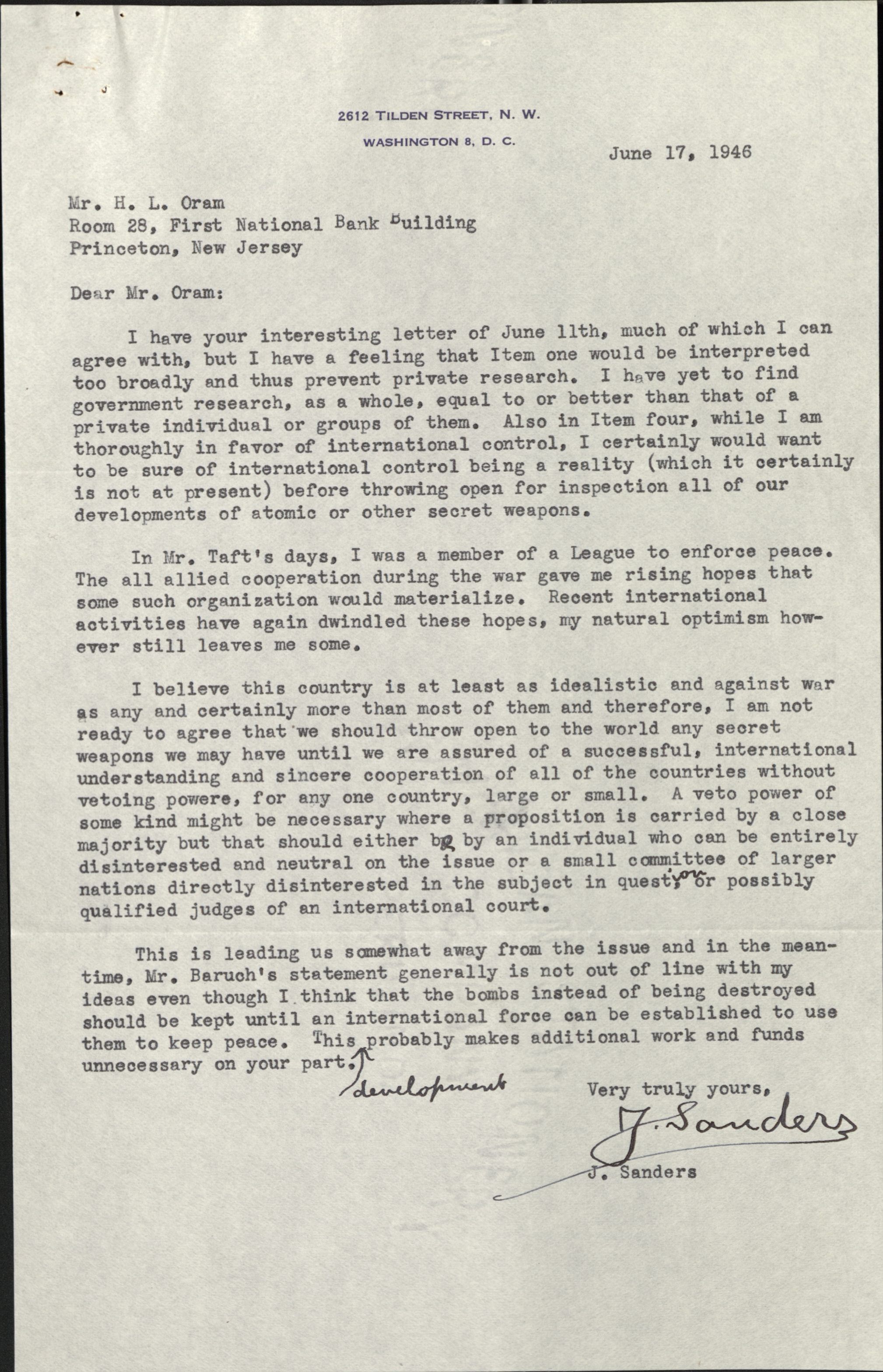Log in to Scripto | Recent changes | View item | View file
Sanders, J., June 17, 1946.
- Copy the text as is, including misspellings and abbreviations.
- Ignore formatting (e.g. spacing, line breaks, alignment)
- If you can't make out a word, enter "[illegible]"; if uncertain, indicate with square brackets, e.g. "[town?]"
- Transcribe letterhead information when possible.
- Click on Save below the box to save.
6.11.5b.1.jpg
« previous page | next page » | show discussion







